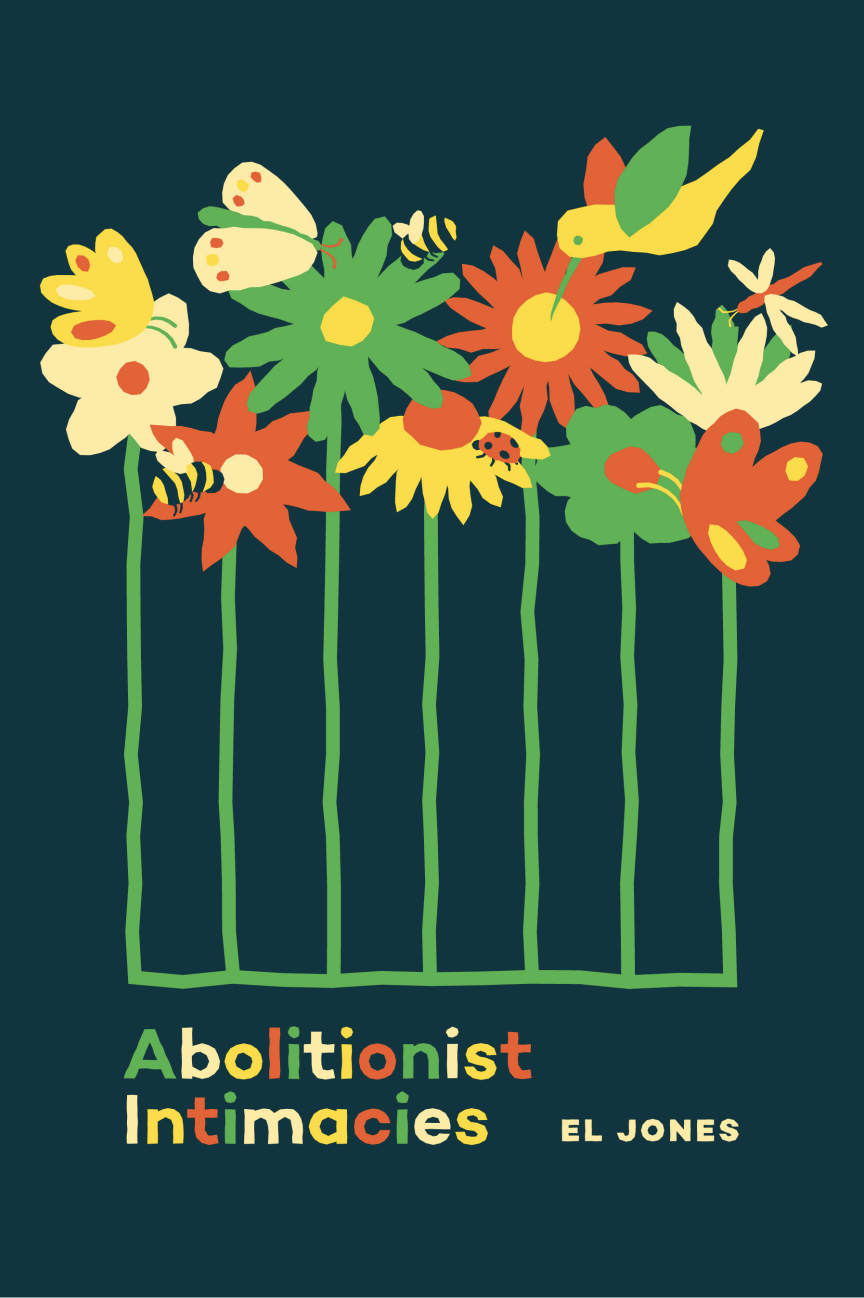Picture this woman saying no to the constant yes of slavery —Sonia Sanchez, “Haiku and Tanka for Harriet Tubman”
I am thinking about the words of Judge Shaun Nakatsuru. A 31-year-old woman named Josephine Pelletier from the Muskowekwan First Nation, brought before the court. The crown, asking for more punishment. Always more punishment, on top of the three years, on top of the long-term offender supervision.
We talk a lot about refusal. The power of rejecting complicity, of making a no. A no that is not just negative, but generative. Judge Nakatsuru’s decision rejects prison as a place of healing, of help, or of necessity. What good is punishment? The word “good” in this question threatens to slip into the word “use,” shifting the meaning of “what good does that do,” into “what’s the point?” But I want to hold onto the word good: What goodness does punishment bring? In refusing punishment, Nakatsuru chooses goodness instead. The decision ends:
[I]t is the most natural of human instincts to want to go home. Even when memories of home are at times tinged with sadness, fear, or regret. Because I am not talking about someone’s actual home. Or a home from one’s childhood. We all nurture in our heart the idea of “Home.” The idea of home is about a place of safety. A refuge. A sanctuary. Where love resides. Home is a place of hope. A place of potential. A place where every one of us can feel like we can become better. Every one of us has such a home, Ms. Pelletier. Even if you live in a small room dimly lit by a bare light bulb hanging from the ceiling. Even if that home can only be conjured up in your imagination if you have the misfortune of having to sleep in a dormitory or a shelter. Or on a steel cot in a prison cell. After careful reflection, Ms. Pelletier, I am sending you home. I wish you all the best in your life. —R. v. Pelletier, Section 29, 30
It is a hard task to live in prison, not just to wait for life to begin again after prison. A., behind glass in the provincial jail, tells me how scared he was when he found himself thinking, I hope I stay here for Christmas instead of federal prison, suddenly realizing he no longer imagined going home. I’m becoming institutionalized, he worries. Sometimes making a place your home — calling a prison cell your room — sometimes that is the most unsafe thing of all. Worse, because it is a necessity for survival.
I struggle with my wanting, with the gap between the things I know I believe and the parts of me that want all the things that make those beliefs impossible. Not that it is impossible to be an abolitionist and have a nice house, or a pleasurable job, or a vacation. But those things — or rather, the structures that surround them in our current social organization — inescapably come into conflict, in the getting of them, with the commitments required to bring a different world into being.
It sounds like I am suggesting the abolitionist world is a dour one of deprivation — a trap more than one revolutionary movement has fallen into in rooting out bourgeois pleasure and ending in mass executions and re-educations. No, it is not that we want to persecute desire. It is that we want those things not to have to be desired, because they are a given. A safe home for everyone. The opportunity to work in autonomous ways for everybody. Free education for all who want it. I am talking more here about the internal struggle, the sense of failing one’s own values, the impossibility so many times of fitting what you know to be right beside the sacrifices you must take to get it, and the resentment of that.

Abolition is a reorientation to the world. As Ruth Wilson Gilmore writes, “Abolition requires that we change one thing: everything.” We understand this applies to all our institutions — not just prisons but the culture that brings prisons into being. To end the prison, we must end punishment and our vindictive desire for punishment. To end punishment, we must think about who we punish and why. To do that, we must think about housing and who doesn’t have it and who is hassled by the police when they do not have it. We must think about land and our relation to it, and why settler colonialism sees land as something to extract from. We must think about power and control. And we must also think about ourselves, how we benefit from these systems and how we want those benefits for ourselves.
To think about this is to get perilously close to purity discourse, to the endless flogging of ourselves, to reification of guilt and anxiety. And that is not what I am trying to build here at all, a world where we brutally examine ourselves for any sign of promiscuous, undisciplined desire. It is too close to punishment itself. It is not the desire I am troubled by, but the causing of it. Why is it that a university job eluding me can shatter my self-worth and sense of being in the world at the same time as I know these institutions are not built to care about the people and issues and world that I care about? Why is stopping the deportation or winning the appeal not enough? I do not mean “enough” in the sense of it being finished justice, for having watched Derek Chauvin be convicted we know justice is never brought by one moment, one verdict, one policy change. I mean “enough” in my own internal sense of fulfillment.
I think what I am really asking is, what does it mean to live in the world as an abolitionist when we know we will not see the world we labour to build in our own lifetimes? Abolition in our current time is inherently believing in something we will always fall short from. We believe prisons must fall, but in the meantime, there is money to be put on the phones and canteen, which paradoxically feeds the prison industrial complex. But that small pleasure of canteen is what makes life inside a little more bearable. We would not ask that to be given up on the theoretical ideal of resistance.
What does it mean to live in the world as an abolitionist when we know we will not see the world we labour to build in our own lifetimes?
We must learn to make a home in this falling short. We must learn to make a home, in our homes, the foundations of the world we envision. As Mariame Kaba reminds us, over and over, we practise abolition every day in practical ways by challenging ourselves to think differently about conflict, to not see accountability as chastisement but as transformative, to move beyond shame in our failed or incomplete attempts at reparation. We practise abolition by organizing: bringing the groceries, and speaking with our relatives about sexual violence when they have never voiced their trauma, and banding together in our building to reject the landlord. We practise it lying under the deportation van, and in the protest outside the prison, and in the rides we share to these places as we build collectivity and mutual aid. In a selfish society, it takes practice to unlearn our wants, to find new things to reach toward. It is not stripping away what we want but filling ourselves with something different, with love for each other and shared successes.
I know my wanting has a history. I think there is maybe always guilt to wanting as a Black person, as we are always aware that everything we have, even breath, was won for us by the suffering of our ancestors. However bad we have it, we are taught, it is nothing on what those of generations before endured. Paradoxically, it is because of this suffering that we are also taught success is a responsibility; we owe it to them to achieve the things they could not. I am the hope and the dream of the slave. But we cannot imagine our dreaming without slavery. We cannot think of our freedom without remembering our unfreedom. There are some of us who respond to this history by embracing the getting. Get your bag, girl! Our mansion is a slap in the face to the spectre of the slave master. I think of that Dave Chappelle sketch about the time haters, travelling through time to shoot slave masters: “We travelled all the way back through time to call you a cracker.” Chappelle captured that fundamental desire, the vindication and joy of revenge. It is not abolitionist, but it is satisfying, and this, too, is abolitionist struggle as we know that abolition is also for the police who murder Black people. Even as we feel that as long as there are prisons, surely those are the people who should be in them.
More from our decarceral brainstorm
Every week, Inquest aims to bring you insights from people thinking through and working for a world without mass incarceration.
Sign up for our newsletter for the latest.
Newsletter
But Black capitalism is not a substitute for white capitalism — or rather, it is only substitution. Now the African National Congress and not a white person can preside over miners being gunned down at Marikana. And Black people can profit from it too. This is not freedom. And so, to desire freedom we must eventually desire something else, something beyond. And even in abolitionist circles this is a tension between what we say we believe in and the difficulties of living up to it when there are always others who will take those opportunities, and receive that praise, and live easier for it. Without that beyond, my desires make me restless, unhappy. Perhaps ironically, I suspect part of my drive to activism is rooted in this sense of discontent. The solution is not asceticism; I believe it is richness. But a richness located in each other, not in self.
We think of ending desire as a punishment, perhaps, as self-discipline and deprivation. But what would desire look like in a world without punishment? If we learned to be generous with ourselves. If we did not believe indulgence must be met with reduction. If we did not feel we failed ourselves when we fall short and then bitterly reproach ourselves. Would our desires then morph into something gentler?
Perhaps abolition is also the uncovering of our autonomous desires, which have been muffled by capitalism, racism, patriarchy, etc. Perhaps it is as simple as returning to the most basic of needs: food, shelter, companionship. Perhaps in reshaping our wanting, we reshape the world. There is a place for desire in an abolitionist world, at least when desire is pleasure and love and freedom.
Excerpted from Abolitionist Intimacies. Copyright © 2022 by El Jones. Reprinted with permission from Fernwood Publishing.
Image: Jr Korpa/Unsplash

